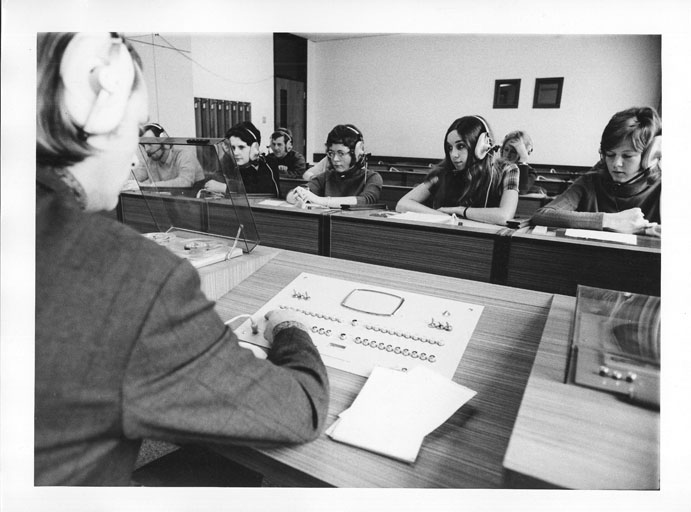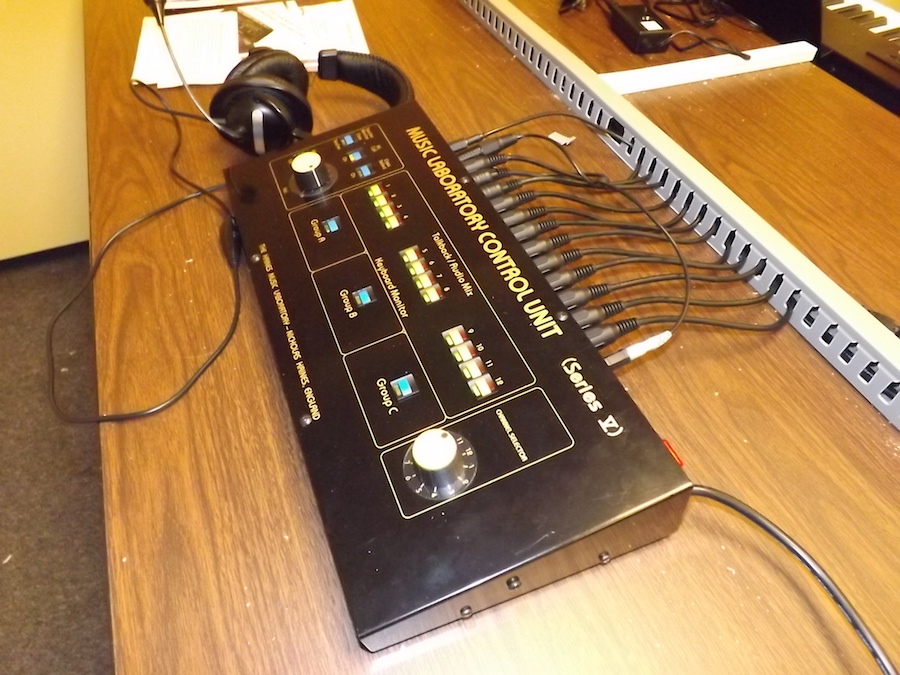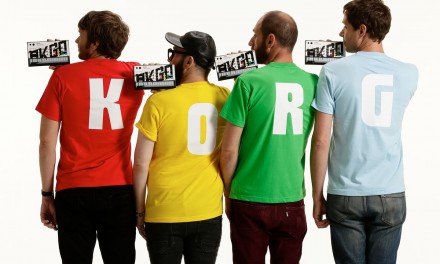Over the summer, UCan Play, working with our consultant Nicholas Haines, have installed a new piano laboratory at Lakenheath High School.
Those readers of a certain age will remember the traditional language learning laboratories that were popular in schools during the late 1960s onwards:

These ‘learning laboratories’ allowed students to practise speaking a foreign language individually whilst being monitored by their teacher. The teacher’s control system allowed them to speak to the whole class, listen to each student individually or talk to them individually to give them feedback on their work. Backing tapes of language exercises were played through the system to facilitate the learning of the language.
Piano laboratories have built on these principles and have been a stable diet of music education approaches in many countries around the world, notably in Asia and the USA. Commercial solutions produced by Korg and Yamaha are available.
UCan Play was approached by staff at Lakenheath High School in Suffolk for such a solution. We researched the options and found that the Korg and Yamaha solutions were not licensed for use within the UK. Through further research and by exploiting our networks, we found out about the work of Nicholas Haines, a inventor and manufacturer of a bespoke piano laboratory system. We contacted him about his system, designed an appropriate installation for Lakenheath High School and, over the summer, Nicholas has installed the system in one of their classrooms. In addition to the laboratory learning system itself, we supplied and installed 13 Roland F20 digital pianos for the school.


Like the language learning systems of old, the Haines system has a teacher control unit that affords the teacher certain functionalities:

The twelve pianos in the room are divided into three main groups of four pianos (A, B & C). This can be extended easily at a future date if required. The individual student talkback technology located alongside each piano allows students to both hear their own piano and engage in two-way conversation with their teacher. If desired, students can also hear the pianos of other students in their group.
The piano laboratory provides a range of functionality, including:
- Pianos being linked into groups of four to work together as ensembles;
- The teacher being able to play backing tracks for students to play along with;
- Individual students ‘playing alone’ with the teacher’s backing track or the teacher’s own piano accompaniment;
- The student or teacher recording their own keyboards at any time without affecting the rest of the class;
- Students undertaking their own individual work on their piano.
The group learning of instruments in initiatives such as Wider Opportunities has been a major trend in music education over the last ten years. Solutions for the group teaching of keyboard or piano like that provided by the Haines technological infrastructure build on an interesting history of technology-enhanced learning in language acquisition, applying that to music.
Through our work, we have imagined other ‘silent’ instructional systems building on products such as Roland’s HS5 or through the setting of appropriate ‘scenes’ using PreSonus’ digital StudioLive mixers. However, in terms of ease of use and functionality the solution we provided for Lakenheath High School was ideal and came in well under the budget that was prescribed by the school.
If you are considering building a piano laboratory for your school, college or university, please get in touch. We can provide consultancy and support for your project free of charge. We can also supply you with keyboards or pianos at highly preferential rates.





Recent Comments